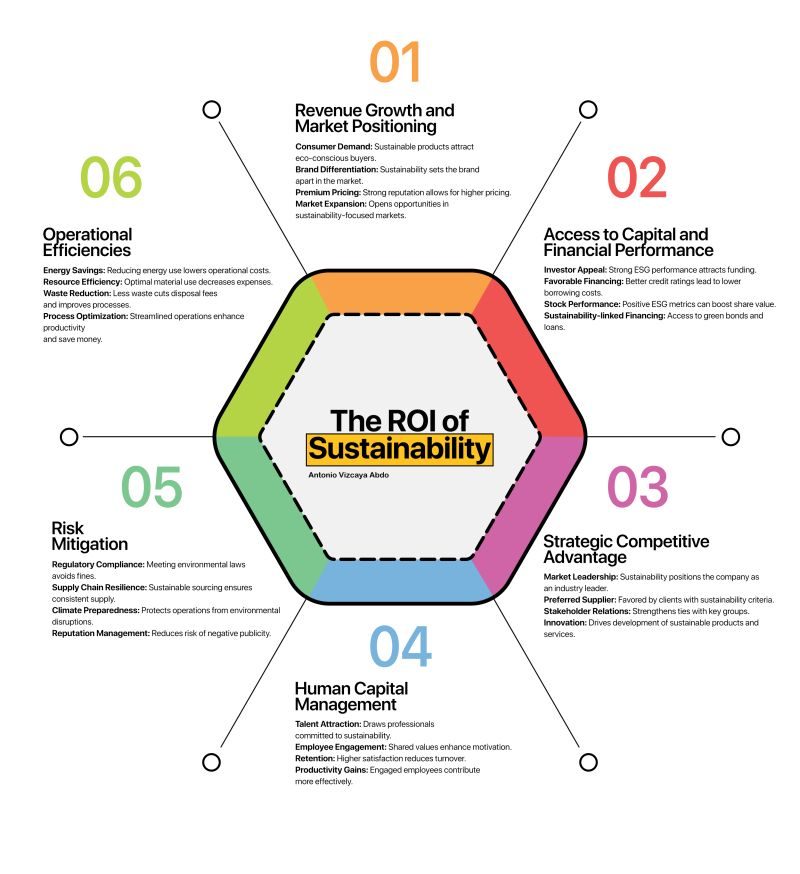Envetec Insight
The ROI of Sustainability: How Businesses Gain from Going Green
Sustainability is no longer a trend; it’s a core business driver. Understanding its return on investment (ROI) is crucial for companies across all sectors. This blog post explores how sustainable waste management practices can not only benefit the environment but also significantly improve your bottom line. We’ll delve into how effective waste treatment strategies generate cost savings, enhance regulatory compliance, and offer a competitive advantage, particularly within the healthcare and life sciences industries.

(Source: https://www.linkedin.com/posts/antonio-vizcaya-abdo-5773769b_sustainability-sustainable-business-activity-7265601145597812738-gozQ/)
Sustainability: A New Revenue Stream
Consumer behaviour is shifting. Today’s customers are increasingly eco-conscious and actively seek out businesses that share their values. Companies aligning with this trend are reaping the rewards.
The life sciences industry, for example, faces growing regulatory pressures and consumer demand for sustainable solutions. Pharmaceutical and biotechnology companies are under increasing scrutiny to minimise their environmental impact while adhering to stringent regulations. Implementing sustainable waste management systems allows these companies to reduce emissions and enhance their brand image, attracting environmentally conscious clients.
ESG Investments: A Path to Financial Success
Strong Environmental, Social, and Governance (ESG) performance is now directly linked to financial prosperity. Investors are prioritising businesses that embrace sustainability. This trend is particularly evident in the healthcare sector, where hospitals and research labs adopting greener waste treatment solutions are attracting significant investment. Such companies often qualify for green financing options, such as sustainability-linked loans, due to their reduced environmental footprint. This access to favourable financing terms makes capital-intensive sustainability investments more financially viable.
Gaining a Competitive Edge Through Sustainable Practices
Sustainability is no longer a differentiator; it’s an expectation. Companies that proactively integrate green solutions into their operations are outperforming their competitors.
Waste disposal presents a significant challenge for the life sciences and healthcare industries. Traditional methods, such as incineration or autoclaving, contribute to high carbon emissions and raise regulatory concerns. Forward-thinking companies are adopting non-thermal, chemical-based waste treatment solutions for biohazard waste and biomedical waste, leading the way in waste reduction and waste recycling while ensuring regulatory compliance. This proactive approach establishes them as industry leaders and strengthens their market position.
Operational Efficiency and Cost Reduction through Sustainability
Sustainable practices are not only environmentally responsible but also financially beneficial. Waste treatment represents a significant expense for hospitals, laboratories, and pharmaceutical companies. On-site treatment solutions eliminate the need for clinical waste collection and transportation, reducing both costs and regulatory risks.
By adopting non-thermal waste treatment solutions, businesses can dramatically reduce energy and water consumption. Compared to traditional methods, companies implementing innovative waste management systems often see:
- A 90% reduction in carbon emissions
- 70% less water usage
- Elimination of the “pay by weight” model for waste disposal
For large-scale life sciences and healthcare companies, these savings translate into millions in operational efficiencies over time.
Mitigating Risk Through Sustainability
Beyond financial incentives, sustainability mitigates business risks. Regulatory scrutiny is intensifying, and non-compliance with environmental standards can result in hefty fines, legal action, and reputational damage.
Traditional biohazardous waste disposal requires transportation, posing safety and liability risks. Sustainable solutions eliminate the need for off-site waste transport, reducing regulatory risk and protecting businesses from potential environmental liabilities.

Conclusion: Sustainability as a Strategic Imperative
Sustainability is more than corporate social responsibility; it’s a strategic business advantage. Companies investing in greener practices experience increased revenue, cost savings, and reduced risk. By adopting sustainable technologies, businesses enhance efficiency, lower costs, and drive growth. The businesses that embrace sustainability today will be the industry leaders of tomorrow.
Previous article
« The Hidden Cost of Biohazardous Waste: Expanding Scope 3 Emissions in Life Sciences
Next article